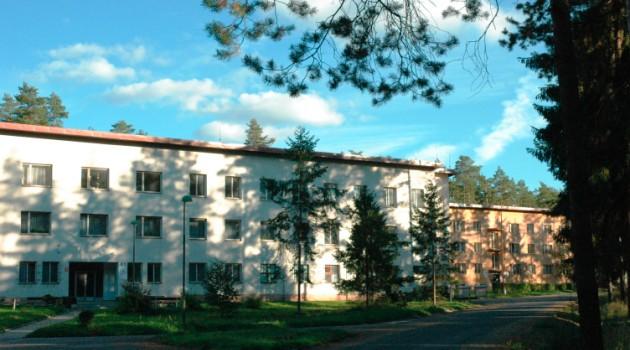Commentary: The Czech Interior Minister's "Potemkin village" of a refugee facility

At the end of the 18th century, the priest Grigory Potemkin is said to have painted scenery of pretty villages and installed it on the banks of the Dnieper to please Empress Catherine II and her guests as they traveled to Crimea in order to demonstrate how prosperous the country was. Ever since then the term "Potemkin village" has referred to something that covers up reality and misleads observers with attractive scenery.
According to modern historians, of course, the story about Potemkin is greatly exaggerated and is probably a legend. What about Chovanec and "his" Bělá-Jezová?
Worse than a Potemkin village – absurd
The facility there (and similar ones throughout the Czech Republic) have long been criticized by experts, international institutions, NGOs, the Office of the Public Defender of Rights, and some politicians. The basic reasons for this can be summarized as follows: The detention of asylum-seekers does not conform to European law; the detainees are treated like prisoners, if not worse; they do not know why they have been detained there or how long they will be detained there; they do not have interpreters available; their health care is insufficient, as are their hygienic conditions; and they are being humiliated and intimidated there.
Moreover, the entire matter is absolutely absurd because once these people are released from detention, they just get back on the same transportation route to Germany that the Czech Police removed them from in the first place. They just have several months or weeks more of suffering behind them when they go.
Here are more specifics about the criticism of the facility at Bělá-Jezová:
What about the children? Do they have a place to play?
"We saw children’s playrooms and a playground here, I am informed that there is a nice nursery school here, and we heard about the recreational activities that the assigned staffer does with the children here," said the Czech Labor and Social Affairs Minster after her tour of the facility yesterday; that ministry is also in charge of protecting children’s rights.
The minister said that while the facility is not ideal at first glance, it "can be withstood" as a temporary residence. Sharper experts or politicians believe children should never be in such a facility, but our minister apparently believes nice new swings are enough.
The report by the Public Defender of Rights after her visit to the facility stated the following, among other findings: "The children are terror-stricken by the omnipresent police officers and uniformed security services. Because there are no other activities, these children living behind barbed wire play ‘police and prisoners’. Another of their ‘games’ is to attempt to dig a tunnel beneath the fence to reach the outside world. The small playground is accessible only at certain times. Some have never visited it. What is meant here by a playground is one climbing structure and one slide. There is a playroom for children elsewhere on the campus, but not all children can fit in it. Some children have no access to any recreational activities."
Now, of course, the Public Defender of Rights is acknowledging that conditions in the camp are completely different from those that prevailed there in August and at the beginning of October. "We appreciate this change. However, we will only be able to do a final assessment after another monitoring visit," she said.
According to the journalists who managed to visit the detention facility yesterday, the detained asylum-seekers have also noticed that conditions in the camp have changed for the better during the past week. Does this mean Minister Chovanec acknowedges his errors?
Will this be the stable state of affairs there now? Is it even, perhaps, a sign that our politicians are changing the approach they take to asylum-seekers?
Not from what I’ve seen of Chovanec. My money is on this all being a tragicomic "Potemkin village".